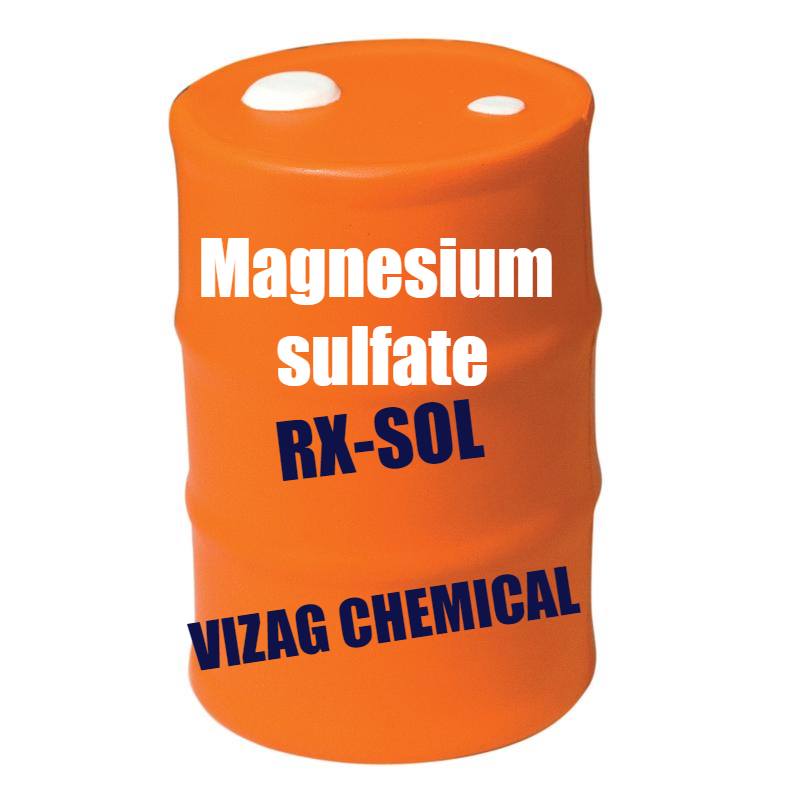Magnesium sulfate
Magnesium sulfate is an inorganic salt with the formula MgSO4(H2O)x where 0≤x≤7. It is often encountered as the heptahydrate sulfate mineral epsomite (MgSO4·7H2O), commonly called Epsom salt. The overall global annual usage in the mid-1970s of the monohydrate was 2.3 million tons, of which the majority was used in agriculture.
Epsom salt has been traditionally used as a component of bath salts. Epsom salt can also be used as a beauty product. Athletes use it to soothe sore muscles, while gardeners use it to improve crops. It has a variety of other uses: for example, Epsom salt is also effective in the removal of splinters.
Uses
Medical
See also: Magnesium sulfate (medical use)
It is on the WHO Model List of Essential Medicines, the most important medications needed in a basic health system.
Magnesium sulfate is a common mineral pharmaceutical preparation of magnesium, commonly known as Epsom salt, used both externally and internally. Magnesium sulfate is highly water-soluble and solubility is inhibited with lipids typically used in lotions. Lotions often employ the use of emulsions or suspensions to include both oil and water-soluble ingredients. Hence, magnesium sulfate in a lotion may not be as freely available to migrate to the skin nor to be absorbed through the skin, hence both studies may properly suggest absorption or lack thereof as a function of the carrier (in a water solution vs. in an oil emulsion/suspension). Temperature and concentration gradients may also be contributing factors to absorption.
Epsom salt is used as bath salts and for isolation tanks. Magnesium sulfate is the main preparation of intravenous magnesium.
Internal uses include: Oral magnesium sulfate is commonly used as a saline laxative or osmotic purgative.
Replacement therapy for hypomagnesemia
Magnesium sulfate is an antiarrhythmic agent for torsades de pointes in cardiac arrest under the ECC guidelines and for managing quinidine-induced arrhythmias.
As a bronchodilator after beta-agonist and anticholinergic agents have been tried, e.g. in severe exacerbations of asthma, magnesium sulfate can be nebulized to reduce the symptoms of acute asthma. It is commonly administered via the intravenous route for the management of severe asthma attacks.
Magnesium sulfate is effective in decreasing the risk that pre-eclampsia progresses to eclampsia. IV magnesium sulfate is used to prevent and treat seizures of eclampsia. It reduces the systolic blood pressure but doesn't alter the diastolic blood pressure, so the blood perfusion to the fetus isn't compromised. It is also commonly used for eclampsia where compared to diazepam or phenytoin it results in better outcomes.
Agriculture
In agriculture, magnesium sulfate is used to increase magnesium or sulfur content in the soil. It is most commonly applied to potted plants, or to magnesium-hungry crops, such as potatoes, roses, tomatoes, lemon trees, carrots, and peppers. The advantage of magnesium sulfate over other magnesium soil amendments (such as dolomitic lime) is its high solubility, which also allows the option of foliar feeding. Solutions of magnesium sulfate are also nearly neutral, compared with alkaline salts of magnesium as found in limestone; therefore, the use of magnesium sulfate as a magnesium source for soil does not significantly change the soil pH.


Leave a comment